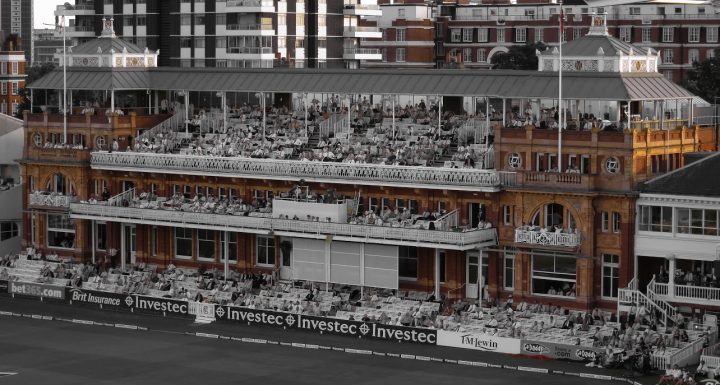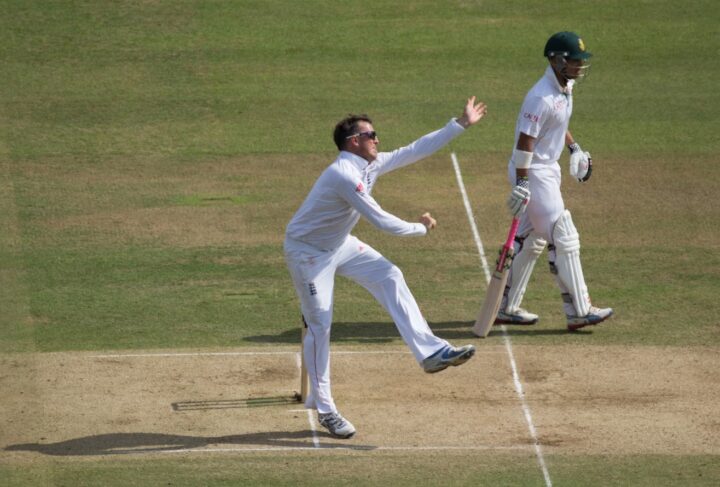The big news today is that Faf Du Plessis has been found guilty of ‘ball tampering’. The whole saga strikes me as rather odd. As supporters of a team that once threw jelly beans at opponents, we all knew the practice of sucking sweets was rife. Didn’t the ICC? Or is it only illegal when you get caught by television cameras? Guest writer Mike Foulkes investigates …
Following the second Test match against Australia, South Africa’s captain Faf du Plessis was charged by the ICC for illegally altering the condition of the ball by rubbing it with saliva while eating a sweet. Now, this may sound like the sort of thing that happens to naughty schoolboys – “Du Plessis, what are you chewing on? A sweet eh? Well I hope you brought enough to share with everyone. You didn’t? Well in that case you’re in detention.” However, this isn’t a repeat of homework-gate – though a few of the Aussie batsmen should perhaps be kept behind after school for extra practice – instead it’s an episode that is both farcical and important, and unnecessary yet unavoidable.
It’s not the first time du Plessis has been in trouble for altering the condition of the ball, having been fined for rubbing the ball near a trouser pocket zip. Another member of the current South African touring party, Vernon Philander, has also been fined in the past for picking at the seam. However, this is far from an isolated issue (just ask Messrs Atherton, Afridi, Tendulkar, Dravid and the Pakistan team in 2006).
Cricket Australia were given the opportunity to lay an official complaint against du Plessis after seeing the footage but chose not to. Likewise the match officials opted not to punish du Plessis when footage of the incident was shown to them. However the ICC, in their wisdom, reviewed the footage and brought the charge. The man in the dock was found guilty and fined 100% of his match fee – although he escaped a ban.
On the one hand the charge was reasonable, as ball tampering is a serious allegation. On the other hand du Plessis is definitely not the only player guilty of this accusation. Once they had seen the footage though, the ICC probably thought they had little choice.
The idea that sweets help to keep the ball shiny for longer dates back a couple of decades. In fact, Marcus Trescothick admitted in his 2008 autobiography that he sucked Murray Mints while shining the ball to keep it shiny for longer. Although there is no definite proof this works, England’s bowlers were able to get more swing that their opponents during the 2005 Ashes when Trescothick was apparently getting through 15 mints a day!
Rahul Dravid once had the same idea as Trescothick and du Plessis but opted for a less subtle approach: he was caught on camera rubbing a cough lozenge on the ball and lost 50% of his match fee. He was also forced to hand over the 20,000 boxes of Strepsils the Indian team doctor had been carrying around “just in case everyone gets a cold at once.”
The main problem the ICC has is that, unless you make it as obvious as Dravid, it’s pretty hard to enforce this rule. When Trescothick made his admission, the ICC agreed that it was technically illegal but said they would not ban players from eating sweets. Nor would they impose a mandatory bedtime or force everyone to clean their rooms. Sweet shops outside English cricket grounds breathed a collective sigh of relief.
As du Plessis’s team-mate Hashim Amla pointed out, players have long chewed gum while fielding. This would put as much sugar in their saliva as most other sweets; therefore they were guilty of using sugary saliva to change the condition of the ball too. Why weren’t they charged when it was obvious what was going on? Why haven’t the ICC stamped down on the practice before now?
Furthermore it is rumoured that hair gel and suncream can be used to keep the ball shiny for longer. I guess the ICC could ban Brylcreem from all dressing rooms – though how the immaculately coiffeured Stuart Broad would react doesn’t bear thinking about – but it would be impossible to ban suncream. Therefore we’re left with a practice that’s illegal but cannot be prevented.
So what happens now? Du Plessis is appealing the verdict so the whole thing will probably go to court. While he can consider himself unfortunate to have been caught, since it is a pretty common practice, claiming that it was unintentional (but admitting to it) might have been a simpler solution.
As it stands, the law is clearly unenforceable in the majority of cases, but the idea of preventing players from using substances to alter the condition of the ball is certainly understandable. The trouble comes with things like suncream or hair gel, which will impact on the condition of the ball but can be applied accidentally (or with no intention to ‘cheat’).
There seems no clear legislative way to balance between suncream, a pocket full of dirt, or the use of sweets. Short of making a definitive list of illegal substances – which might open a can of worms and create far more issues than it solves – the likely outcome is that nothing will change. Instead the occasional player will continue to be punished whenever they’re caught on camera doing something we all know happens anyway. I severely doubt du Plessis will be the last player to slip some fruit pastilles in his pocket before play starts.
Mike Foulkes
You can catch more of Mike’s work at his blog Two Point Three Six.









Has anyone proved that the condition of the ball was altered?
I just can’t take this ‘crime’ seriously. The ICC know (or should know) damn well that this practice is very common in cricket. It has been for years. It’s daft to only punish players when they’re caught on camera. What example does that set? It just tells kids that you’re allowed to cheat as long as nobody catches you.
If the ICC really believe that applying sweetened saliva to a ball is ‘ball tampering’ then they should ban players from eating sweets / gum etc on the playing field. But they haven’t done that, have they. The only reason a cricketer would suck sweets in the middle of a test match is to help shine the ball – there’s no health benefit etc – so it makes no sense NOT to ban gum / sweets etc … unless you want to create a farcical situation of course.
It seems to me that the ICC need to decide whether applying sweetened saliva to a ball is cheating or not. One could argue that batsmen get too much help these days, and that the swinging ball is a great spectacle and adds excitement to the game. I don’t particularly mind which way the ICC go on this issue but they need to be clear.
If you want more recent evidence that it’s common practice, try:
https://twitter.com/MattPrior13/status/800247531234009088
Or Steve Smith’s press conference (and, to be fair, none of the Australian players had anything to do with this).
Yep. It’s very weird. As Mike says in his piece, Cricket Australia didn’t seem to be fussed … so why are the ICC bothered? Well, we know why, but you get the point.
Wasn’t he caught sucking mints, and applying saliva to the ball. That’s clearly an illegal tic tac!
Brilliant! Nothing more to be said. ?
It seems this has its roots in the host broadcaster choosing to run some footage they had and Dave Richardson happening to watch it. Unsurprisingly, the Indian host broadcaster’s footage of Kohli doing the same thing didn’t emerge until after the time period when action could be taken.
The whole thing is a mess. For a start, there needs to be some proper research into what gives an unfair advantage and what doesn’t. Tres’s Murray Mints may have worked in 2005 but he did the same thing in the preceding series and it didn’t help.
It hasn’t been as widely reported but Misbah has been banned from the Second Test in NZ for a second slow over rate offence. How has he offended – and other captains who never seem to get through their overs in time have never had action taken against them? It looks like some captains are soft targets.
England’s overrates were very poor at Rajkot. One could argue it cost England the game. I’m not sure whether we were any better at Vizag, but Cook must be pushing his luck a bit.
Interesting that they’ve covered it with Misbah’s father-in-law being ill. Unless he figured that if banned he might as well go home …
As far as ball shining goes, given the improvement in bat technology in recent years we might as well try to give bowlers an advantage. I see no problem with artificial “shining aids” being used there. A more sensible line (bearing in mind I’ve seen club players in NZ rubbing a ball on a concrete pavilion floor to roughen up 1 side of a ball!) is to ban anything that damages the ball – so no fingernails, bottle tops*, zip fasteners, sand-paper in pockets etc – and don’t stress the unenforceable.
This is an old old issue in cricket, I remember reading a story about Walter Hadlee (father of Richard & NZ captain post-WWII) playing in a christchurch club match. While his team were being skittled for not many he realised the oppo were using a banned ball known as an “all-day-shiner”** that looked to have had an extra polish via a spinning bicycle wheel. In between innings he went over to congratulate the opposition, and quietly pilfered the offending ball from their team bag. His bowlers were able to use it to roll the opposition and win the match
* NZ trundler Chris Pringle admits using one to help take a 7-fer in Pakistan in the early ’90’s because he was so certain Waqar and Wasim were doing the same to generate reverse swing
**When did manufacturers forget how to make these anyway?
Under the Laws as they stand it is cheating. That so many get away with it is neither here nor there. Either enforce the Law more rigorously or change it.
I agree completely.